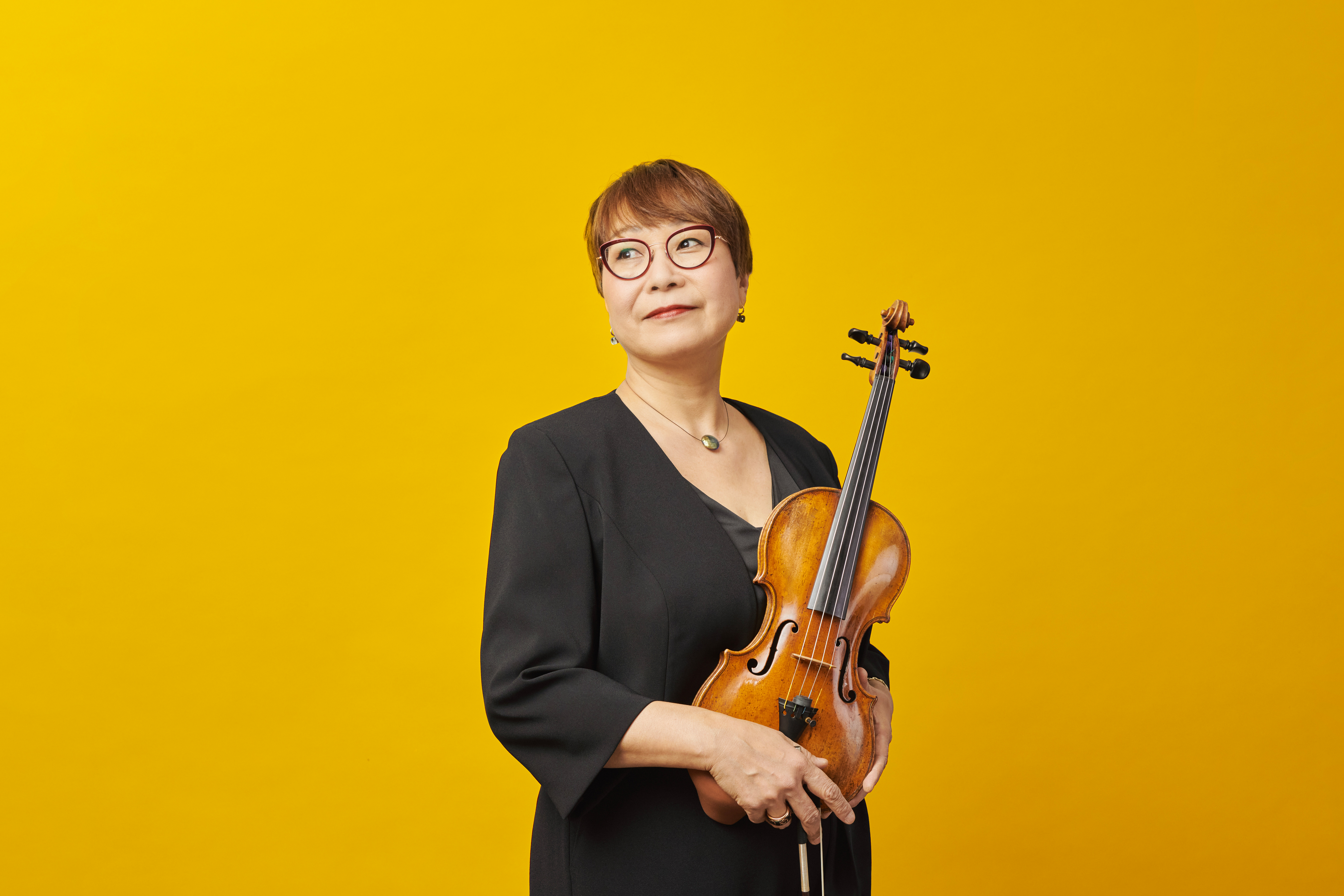- If I were not a musician ...

In this section, we introduce our readers to members of the orchestra and their extra-musical passions. Today it is the turn of the violinist Kotowa Machida, for whom cooking is pure relaxation.
One of the first words that a child in Japan learns is Itadakimasu (頂きます). Translated literally, it means “I will humbly accept it”, but it has a more fundamental meaning as an expression of appreciation before meals. With Itadakimasu, you thank everyone involved in the preparation of the meal – from farmers and fishermen to cooks. While we reflect on this charming expression of gratitude for food, the aroma of roast pork wafts through the canteen of the Philharmonie. It seems incongruous to discuss Japanese food here.
Kotowa Machida was born in Tokyo. After her studies there, a scholarship from the German Academic Exchange Service (DAAD) took her to Frankfurt am Main, where she continued her training with the legendary violinist and teacher Edith Peinemann. Her arrival in Frankfurt must have been a culinary shock for the 23-year-old: sourdough bread, black bread, pork-fat cake, and, last but not least, the Frankfurter Kranz, a rich, ring-shaped cake notorious for its high calorie content – all of which was unfamiliar and difficult for her to digest. Fortunately there was a small Japanese community in Frankfurt at that time, and a few delicatessens where one could stock up on Asian groceries. After her studies in Frankfurt, Kotowa Machida became concertmaster of the Württemberg Philharmonic in Reutlingen for four years, before joining the Berliner Philharmoniker in 1997.
Cooking has an almost meditative function for Kotowa Machida. When she comes home after a long rehearsal day with hours of playing the violin, she can relax by chopping vegetables. The clattering of the knife on the cutting board sets the rhythm, and in no time, she feels all the tension fall away. “Japan is an elongated country with different climatic zones,” the musician explains during the lunch break, “so the cuisine varies greatly from region to region. Even the soy sauce tastes different in the south than in the north.” Kotowa Machida loves simple Japanese cooking in particular: miso soup with fried tofu and lots of vegetables, gomoku sushi, in which ingredients like vegetables and seafood are scattered onto or into the sushi rice, or karē raisu – Japanese curry – which is traditionally served with meat, potatoes, carrots and onions.
Kotowa Machida has not tackled kaiseki – the “haute cuisine” of Japanese cooking – yet. “The elaborately served dishes are aligned with the seasons and carefully coordinated,” she says. “Even the tableware must harmonize with the theme.” Is there anything about Japanese cuisine that she absolutely doesn’t like? She is not enthusiastic about goya champuru – bitter melon – or the Osaka cuisine, with its innards.
Has she come to terms with German cuisine by now? “Oh yes,” Kotowa Machida smiles. Her husband is German, and sometimes she cooks German dishes, but always with a cookbook for guidance. Then the gong sounds, the break is over, and Kotowa Machida returns to the rehearsal, leaving behind a thought: Perhaps we should all say Itadakimasu now and then.

Kotowa Machida
Profile of the violinist of the Berliner Philharmoniker

Martin Heinze: If I were not a musician ...
Double bass player Martin Heinze likes to rise above things.

Matthew McDonald: If I were not a musician ...
Double bass player Matthew McDonald loves poetry – and not only in music.